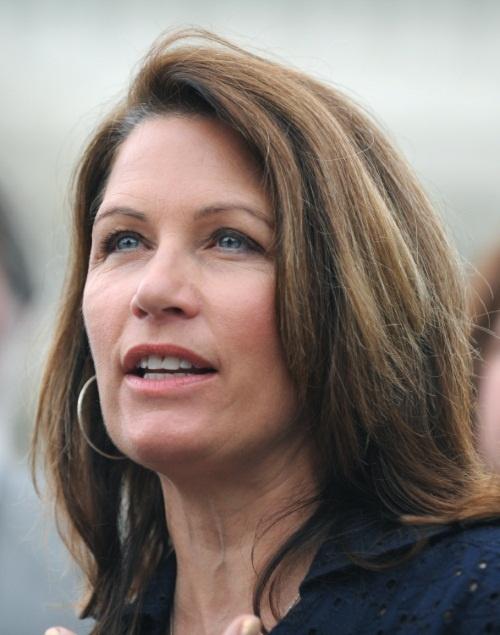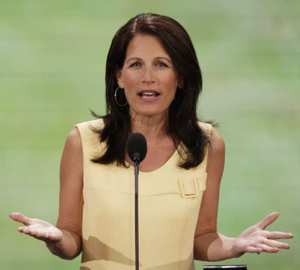
The Presidential race’s political landscape over the many years we have been having electoral contests has been littered with shooting stars, could’ve beens, should’ve beens, and circus acts. Every interest group has put forward their shining champion, every celebrity driven individual, their moment in the sun. Many potential candidates in these niches don’t pan out before a single vote is taken, and some fall away from the unceasing derision from the main stream media that feels it has an exclusive obligation to perform in vetting whether a candidate has sufficient “gravitas” for the job as President. Many of these candidates don’t deserve more than a brief moment in the sun. But as most of us who have generally lost faith in the “objective” review provided by the main stream media, two niches of conservatism have been especially derided, the “black conservative” and the “female conservative”. The paint used to color their participation in the process of debate as to the future of this country by the media uniformly places them as “fringe”, “radical”, “uninformed”, or the old standby “dumb”. These shadyingly racist and sexist adjectives are used by a liberal mindset that lauds itself on being above all such prejudicial rationalizations to denigrate legitimate candidates that may present a threat to their view of the world. Coming to mind is the descriptive assault used on Alan Keyes, Barrack Obama’s African American opponent in the 2006 Illinois Senate race and later Presidential candidate, and more recently, and scathingly, Alaskan governor and Vice Presidential candidate Sarah Palin.
A new “female conservative” has entered the fray, and this one may prove not so easy to undermine. Michele Bachmann, U.S. Representative from Minnesota’s 6th District, presents and entirely new challenge to the liberal paintbrush as an accomplished, highly educated, articulate, savvy, and hard as nails campaigner that just might have the staying power to upset the establishment apple cart and get us to all re-think what “female conservative” is all about. That is why Michele Bachmann is Ramparts People We Should Know – #15.
Matthew Continetti in the Weekly Standard provides us with an in-depth introduction to Michele Bachmann in his article, “Queen of the Tea Party”.. He underscores Ms. Bachmann’s classic American roots, uplifting story of her life, and sources of her innate activism. The overriding theme of this individual’s life that presents time and time again is Ms. Bachmann’s genetic drive to lead. On almost any front of her life where she saw the need for people to step forward and make a difference she has made the personal sacrifice to put herself forward and get the job done. Her start in politics is legendary as a neighborhood mother that stepped to the podium at a political event to define freedom, and ending up being nominated over the candidate whose nomination the political forum was positioned to rubber stamp. She is of particular attractiveness to Tea Party activists  who identify with her stance as an unbending principled conservative in the face of a Washington elite class that has always rewarded ‘knowing your place” and vanilla conservatism. She is an evangelical Christian that holds and unbreakable support for Israel, a country she spent time at a kibbutz in her teenage years. She is impassioned advocate of traditional educational norms, coming into her own in overthrowing Minnesota’s establishment lerch to “non-judgemental” education and collapse of the building blocks of analytic and critical thinking denied the modern primary and secondary education student. She is a strict fiscal disciplinarian in a Washington culture that has come completely off the fiscal rails and threatens the very economic lifeblood of the United States. Most significantly, she is well read, articulate debater who functions extremely well without a teleprompter and is capable of engaging her audience, rather than turning it off.
who identify with her stance as an unbending principled conservative in the face of a Washington elite class that has always rewarded ‘knowing your place” and vanilla conservatism. She is an evangelical Christian that holds and unbreakable support for Israel, a country she spent time at a kibbutz in her teenage years. She is impassioned advocate of traditional educational norms, coming into her own in overthrowing Minnesota’s establishment lerch to “non-judgemental” education and collapse of the building blocks of analytic and critical thinking denied the modern primary and secondary education student. She is a strict fiscal disciplinarian in a Washington culture that has come completely off the fiscal rails and threatens the very economic lifeblood of the United States. Most significantly, she is well read, articulate debater who functions extremely well without a teleprompter and is capable of engaging her audience, rather than turning it off.
It is difficult to say whether Michele Bachmann has yet sufficient experience or staying power to take on what is ahead of her in the coming electoral battles. It is yet unclear whether the populist stance she has taken fits the country’s mindset as to what a chief executive should be. What is progressively encouraging for America and health of all our debates on our increasingly difficult problems, is that a generation of talented and decidedly conservative female and minority candidates are coming forward to the debate, and taking on the prejudice of liberal bias. Our problems are best addressed when the consideration of a liberal or conservative philosophy as best suited to address our country’s challenges is predicated on the strength of the argument, and not the superficial cloak used to obscure the leader inside. The revolution to come is not one of policy, but inevitably in the tradition of this country, within ourselves.
